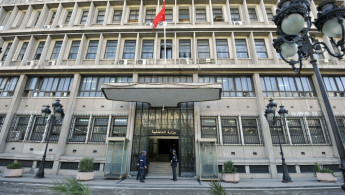Tunisia: 80 percent of Administrative Court rulings not implemented
Ibrahim Missaoui, who heads the centre, said it was difficult to force ministries to adhere to the rulings, especially the powerful Interior and Defence Ministries.
Unlike other courts, Tunisia's Administrative Court does not fall under the purview of the Justice Ministry - it reports directly to the prime minister. The court rules on administrative disputes brought by employees and citizens against government institutions.
| The court rules on administrative disputes brought by employees and citizens against government institutions. |
Before the revolution, people were too scared to file complaints against the ministries, said Missaoui. But they have now gotten over their fears, and many rulings have been made in their favour - yet such rulings remain unenforced.
Ahmad Bounoura lost his job at the International Union of Banks in 2006.
Bounoura was fired after the unexplained loss of $4,000 from a customer's account. He denied responsibility, and the Administrative Court subsequently ruled he had no involvement in the incident and should get his job back. The judgement has been ignored.
Colonel Lotfi Guelmami was one of 42 military officers dismissed by the Interior Ministry in March 2013. Several, including Guelmami, was granted "early retirement".
But Guelmami had not sought to retire. His age had been doctored on the paperwork so he appeared eight years older than he was, in order to qualify for retirement.
Guelmami was only dismissed because his name was similar to one of the other officers in the firing line.
The Administrative Court ruled he should be able to return to his position - but the Interior Ministry has yet to reinstate him, despite the ongoing hardship and stress it has caused the colonel and his family.
This is an edited translation from our Arabic edition.



